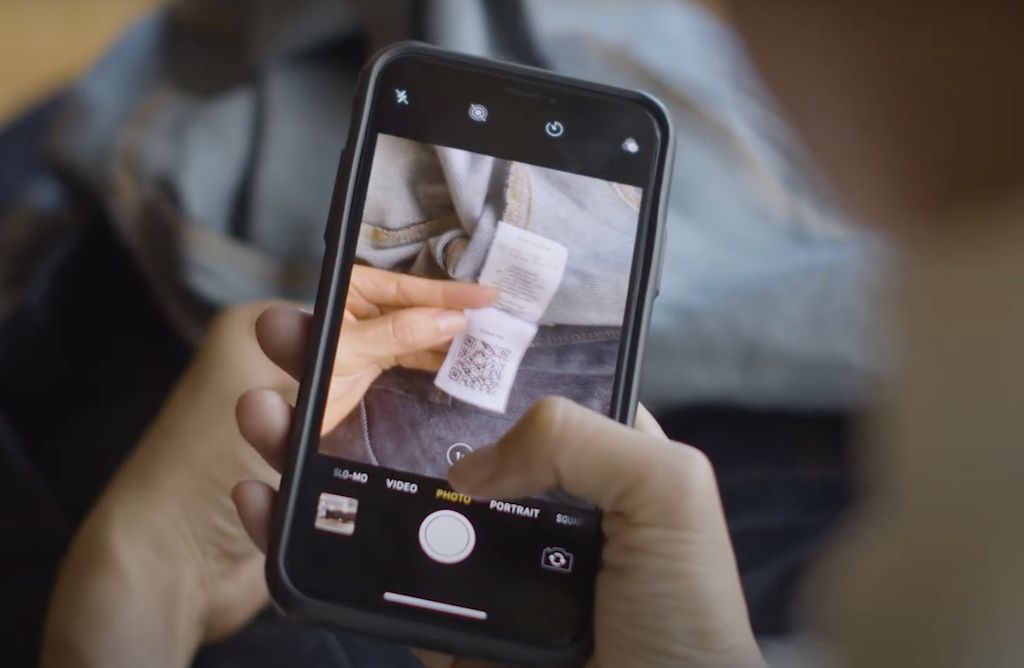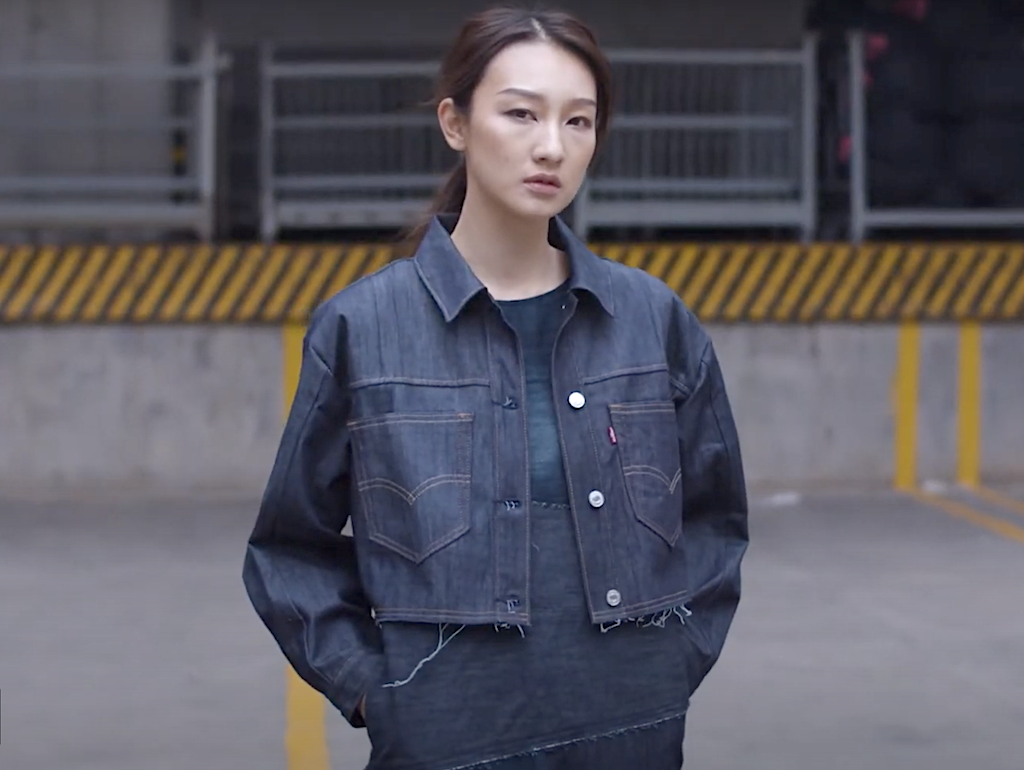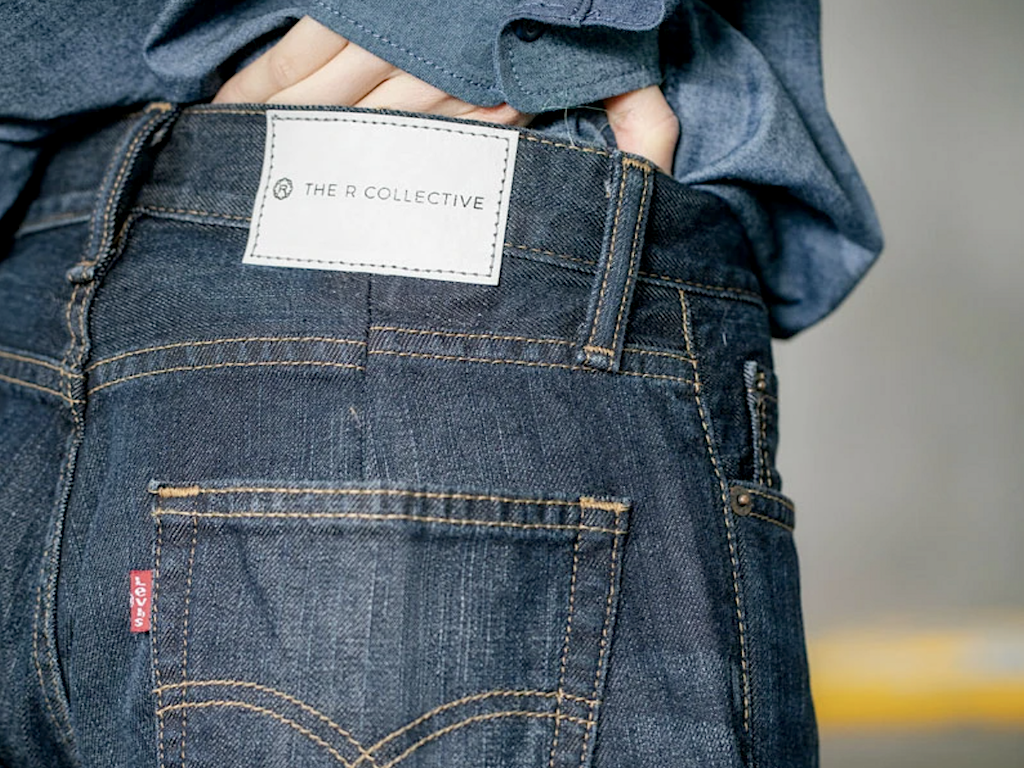Levi’s & The R Collective Creates 100% Traceable Denim Jeans With Eco Wardrobe Tips & Green Fashion Facts
4 Mins Read
In collaboration with iconic denim jean brand Levi’s, The R Collective, a Hong Kong-based sustainable upcycled fashion brand, has created a fully traceable denim collection. Called The Denim Reimagined, the collection uses scannable garment labels to bring digital education to consumers on how to reduce their fashion footprint with practical tips, taking sustainable fashion beyond the supply chain.
In partnership with Levi’s, The R Collective has launched a new project, The Denim Reimagined, featuring a collection of jeans designed by Hong Kong designer Jesse Lee that have QR code labels that can be scanned to obtain information about how to best care for the garment so as to reduce the footprint of fashion.
Every item in the new 9-piece collection is made from upcycled fabrics from Levi’s old inventory, and customers can scan individual codes to understand the supply chain behind the product, energy-intensive washing and drying tips, restyling tips and how to recycle the garment at its end life. The information stored on the code is produced by digital label producers Avery Dennison and IoT and blockchain-powered platform EVRYTHNG.
“Creating a digital engagement and a digital trigger on a garment is one way that we’re helping to inform consumers,” says vice president of innovation and sustainability at Avery Dennison, Mike Colarossi, in conversation with Vogue Business.
Read: Interview with Christina Dean of The R Collective on being a “fashion citizen”

Christina Dean, the founder of The R Collective, explained that after cotton cultivation, the second most carbon-intensive stage of denim is customer care, accounting for 37% of total emissions of the garment. Washing denim with cold water reduces the climate impact of washing by 69%, while hang-drying rather than using a tumble dryer can deduct 65% of the emissions from the process.
By providing customers with information about how to best care for their products in an eco-friendly way, the brand hopes to be able to convey easy-to-implement and actionable steps that can make a dramatic impact on the footprint of a fashion product.
According to EVRYTHNG, digital engagement amongst consumers is at an all-time high, particularly during the coronavirus with stores around the world shuttered due to lockdown and social distancing measures. The company believes that Asian shoppers are most likely to engage with digital experiences, especially with the help of local influencers. To this end, The R Collective has partnered with a number of famous names in social media, including Cecilia Ngan, Susie Lau and Zeena Shah to communicate to local fashionistas the sustainable restyling and laundry advice as part of the project.
The new capsule collection is available for pre-order on The R Collective’s online site, as well as in the Levi’s store in Hong Kong’s newest eco-forward mall K11 from May 11 onwards.

In recent years, more fashion brands have been innovating with digital traceability solutions to inform users about the sustainability of supply chains and verify authentic luxury goods. Last year, Lane Crawford debuted sustainable fashion pop-up by social impact initiative LUXARITY, featuring luxury fashion items donated by celebrities to encourage responsible habits. In partnership with blockchain-powered Lablaco, each garment offered a scannable QR code where fully traceable history – from who previously owned the garment, where it has been worn, the environmental impact of the purchase and a digitised note from the original owner.
It comes as more consumers are growing aware of the ecological consequences of fashion and are choosing sustainable alternatives more than ever before. It is estimated that the global fashion industry drives 10% of global carbon emissions, making it a leading cause of the climate crisis, and contributes a truckload of textile waste to landfills every single second.
The fashion industry has also been long tainted by a litany of human rights abuses and atrocious working conditions, most recently battling the scandal of unpaid garment factory workers in Bangladesh for already completed or in-process orders amidst the coronavirus pandemic.
Want to know the latest in sustainable fashion? Read more fashion news on Green Queen here.
All images courtesy of The R Collective.




